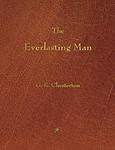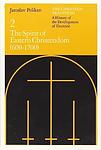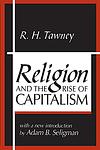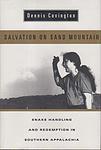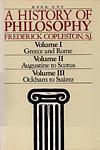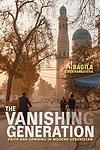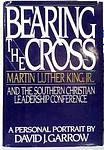The Greatest "History, Religion & Spirituality" Books of All Time
Click to learn how this list is calculated.
This list represents a comprehensive and trusted collection of the greatest books. Developed through a specialized algorithm, it brings together 300 'best of' book lists to form a definitive guide to the world's most acclaimed books. For those interested in how these books are chosen, additional details can be found on the rankings page.
Genres
The category of "History" in books refers to the study and interpretation of past events, societies, and cultures. It encompasses a wide range of topics, including political, social, economic, and cultural developments, as well as the lives of individuals and groups who have shaped the course of history. History books can be written from various perspectives and may focus on specific time periods, regions, or themes. They aim to provide readers with a deeper understanding of the past and its impact on the present.
The category of "Religion & Spirituality" encompasses books that explore various belief systems, practices, and experiences related to religion and spirituality. This includes books on different religions, such as Christianity, Islam, Buddhism, and Hinduism, as well as books on spiritual practices like meditation, yoga, and mindfulness. The category also includes books on personal growth, self-help, and inspirational stories that draw from religious and spiritual traditions. Overall, the category of "Religion & Spirituality" offers a diverse range of books that explore the human experience of seeking meaning, purpose, and connection with something greater than oneself.
Countries
Date Range
Reading Statistics
Click the button below to see how many of these books you've read!
Download
If you're interested in downloading this list as a CSV file for use in a spreadsheet application, you can easily do so by clicking the button below. Please note that to ensure a manageable file size and faster download, the CSV will include details for only the first 500 books.
Download-
1. The City of God by Augustine
The book is a philosophical and theological masterpiece, written as a defense of Christianity after the sack of Rome in 410 AD. The author contrasts the earthly city, characterized by pride and love of self to the point of contempt for God, with the heavenly city, characterized by love of God to the point of contempt for self. He argues that though the earthly city may seem dominant in the present age, the heavenly city will ultimately triumph. The book is a profound exploration of history, philosophy, religion, and the human condition.
-
2. The Life Written By Himself by the Archpriest Avvakum
"The Life Written By Himself" is an autobiographical account by the Archpriest Avvakum, detailing his life as a religious figure in 17th-century Russia. The book chronicles his struggles, including his conflicts with the Russian Orthodox Church, his imprisonment, and his eventual execution. Avvakum's narrative provides a unique perspective on the religious and political climate of the time, showcasing his unwavering devotion to his faith and his unwavering determination to uphold his beliefs, even in the face of persecution.
-
3. Popol Vuh: The Mayan Book of the Dawn of Life by Dennis Tedlock
This book provides a comprehensive English translation of the Popol Vuh, the ancient Mayan creation myth. The narrative covers the genesis of the world, the adventures of the Hero Twins, the creation of humans, and the establishment of the Mayan civilization. The book also includes extensive commentary and notes, providing readers with a deeper understanding of the cultural and historical context of the Mayan myth.
-
4. The Everlasting Man by G. K. Chesterton
"The Everlasting Man" is a Christian apologetics book that explores the spiritual journey of mankind, arguing against both evolution and atheism. The author divides human history into two parts: before and after the arrival of Jesus Christ. He presents humanity as a unique creature in the universe, distinct from both animals and angels, and argues that Christianity, rather than being a product of its time, is the central force that shaped Western civilization. The book is a rebuttal to H.G. Wells' "Outline of History," which presented human life and the universe from a secular perspective.
-
5. The Christian Tradition by Jaroslav Pelikan
"The Christian Tradition" is a comprehensive exploration of the historical development of Christian doctrine from the first century to the present day. It provides an in-depth analysis of the key figures, events, and ideas that have shaped Christian thought, emphasizing the diversity and richness of the tradition. The author meticulously examines the evolution of Christian beliefs, the controversies and conflicts that have arisen over the centuries, and the ways in which these beliefs have been interpreted and reinterpreted in different historical and cultural contexts.
-
6. Religion And The Rise Of Capitalism by R. H. Tawney
"Religion and the Rise of Capitalism" is a comprehensive exploration of the historical relationship between the development of capitalism and the evolution of religious thought, particularly Protestant Christianity. The author delves into the moral and ethical dimensions of capitalism, arguing that its growth was significantly influenced by certain religious ideas. The book also discusses how religious beliefs have shaped economic systems and societal norms, and how these, in turn, have impacted religion.
-
7. My Forbidden Face by Latifa
The book is a powerful autobiographical account of a young woman's life under the repressive Taliban regime in Afghanistan. It provides an intimate look at the brutal conditions women had to endure, including the denial of basic human rights, education, and healthcare. The author's courage and resilience shine through as she secretly documents the atrocities and injustices, providing a unique perspective on this dark period in Afghanistan's history.
-
8. Salvation on Sand Mountain by Dennis Covington
The book is a personal journey of a journalist who, while covering a murder trial of a snake-handling preacher, becomes deeply involved in the culture of snake handling in Southern Appalachia. He explores the history and religious significance of snake handling, while also wrestling with his own faith and the nature of religious ecstasy. The narrative is a blend of true crime, personal memoir, and religious exploration.
-
9. A History of Philosophy by Frederick Charles Copleston
This book is a comprehensive overview of Western philosophy, starting from the Pre-Socratic philosophers to contemporary thinkers. It meticulously traces the evolution of philosophical thought, providing in-depth analysis of key figures and their contributions. The book also critically examines various philosophical doctrines, their influences, and their relevance to contemporary society. It's a valuable resource for anyone interested in understanding the origins, developments, and complexities of philosophical ideas.
-
10. Religion and the Rise of Western Culture by Christopher Dawson
"Religion and the Rise of Western Culture" explores the deep influence of Christianity on the development of Western civilization. The author examines how Christianity shaped the cultural, political, and social aspects of Europe, particularly during the Middle Ages, and how it played a crucial role in the rise of the West. The book provides a comprehensive analysis of the interplay between religion and culture, highlighting the profound impact of religious beliefs on the evolution of Western society.
-
11. A History of the Crusades by Stephen Runciman
This book offers a comprehensive and detailed examination of the Crusades, a series of religious wars fought in the medieval period. The author delves deep into the political, economic, and social circumstances that led to the wars, the key figures involved, and the long-lasting effects on both the Christian and Muslim worlds. The narrative is both scholarly and engaging, providing a balanced perspective on one of history's most complex and controversial periods.
-
12. The Vanishing Generation: Faith And Uprising In Modern Uzbekistan by Bagila Bukharbayeva
"The Vanishing Generation: Faith And Uprising In Modern Uzbekistan" explores the complex relationship between faith, politics, and social change in contemporary Uzbekistan. Through in-depth interviews and extensive research, the author delves into the lives of young Uzbeks who are navigating the challenges of religious identity, political repression, and the desire for societal transformation. This thought-provoking book sheds light on the struggles and aspirations of a generation caught between tradition and modernity in a rapidly changing society.
-
13. The Reformation by Diarmaid MacCulloch
"The Reformation" is a comprehensive history of the European Reformation, which took place in the 16th and 17th centuries. It explores the religious revolution that led to the split of the Western Church into Protestant and Catholic factions, and how this division influenced the development of Western civilization. The book delves into the political, cultural, and social impacts of the Reformation, providing an in-depth look at its key figures, such as Martin Luther and John Calvin, and the profound changes they brought about in society.
-
14. Gandhi's Truth by Erik H. Erikson
"Gandhi's Truth" is a psychological analysis of Mahatma Gandhi's life and the impact of his nonviolent resistance movement. The book delves into Gandhi's formative years, his personal struggles, and his evolution into a national leader, examining how these experiences shaped his philosophy and actions. The author uses Gandhi's life as a case study to explore broader themes of identity, ideology, and the dynamics of social change.
-
15. Crusade and Jihad: Islam and the Christian World by Bassam Tibi
This book explores the historical, ideological, and political aspects of the Crusades and Jihad, comparing and contrasting the two. It delves into the origins and evolution of the Crusades and Jihad, their impact on Christian and Islamic societies, and their relevance in today's world. The author also examines the role of religion in conflicts and the use of religious ideologies for political purposes, providing a comprehensive understanding of these complex issues.
-
16. The Evangelicals: The Struggle to Shape America by Frances FitzGerald
This book provides a comprehensive history of the evangelical movement in America, tracing its evolution from the days of Jonathan Edwards and the Great Awakening to its significant influence on modern-day politics. The author examines the internal dynamics within the evangelical community, its relationship with other religious groups, and its impact on American society and politics. The narrative delves into the rise of the religious right, the role of evangelicals in the culture wars, and their influence on the Republican Party.
-
17. Bearing the Cross: Martin Luther King Jr. and the Southern Christian Leadership Conference by David J. Garrow
"Bearing the Cross: Martin Luther King Jr. and the Southern Christian Leadership Conference" is a comprehensive biography of Martin Luther King Jr., focusing on his leadership role in the Civil Rights Movement. The book provides an in-depth analysis of King's philosophy, political strategies, and his relationship with the Southern Christian Leadership Conference. It also explores King's personal struggles, his moral courage, and his unwavering commitment to nonviolent protest in the face of extreme opposition. The book is based on extensive research, including interviews with King's closest associates, government investigations, and surveillance records.
-
18. The Pope and Mussolini by David I. Kertzer
This book delves into the secret relationship between Pope Pius XI and the Italian dictator Benito Mussolini. The narrative reveals how each man relied on the other to consolidate his power and achieve his political goals, ultimately leading to the Vatican’s endorsement of the Fascist regime. The author uses newly available sources from the Vatican archives to illuminate this dark chapter in the history of the Catholic Church and Italy.
Reading Statistics
Click the button below to see how many of these books you've read!
Download
If you're interested in downloading this list as a CSV file for use in a spreadsheet application, you can easily do so by clicking the button below. Please note that to ensure a manageable file size and faster download, the CSV will include details for only the first 500 books.
Download


